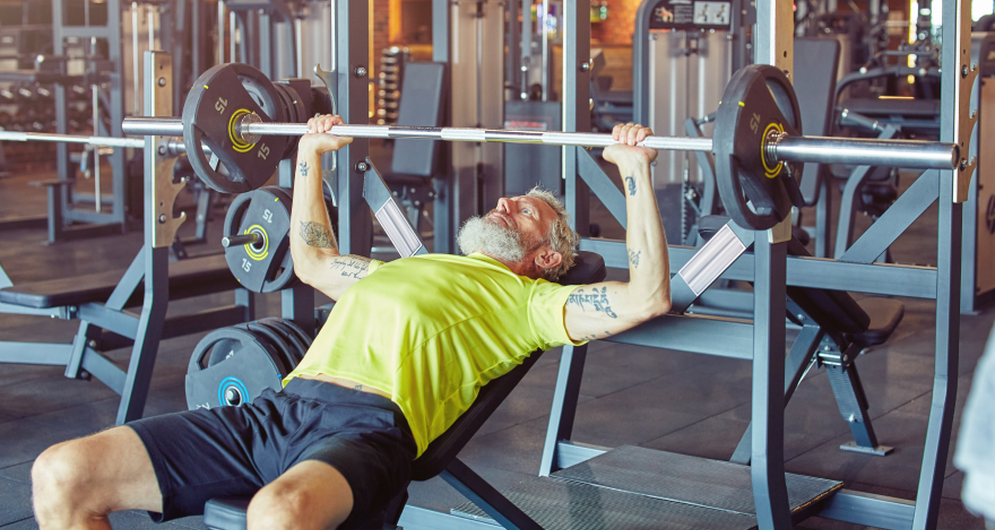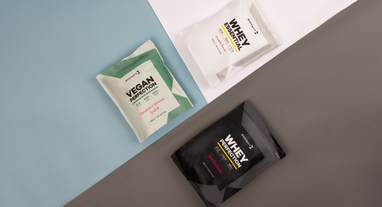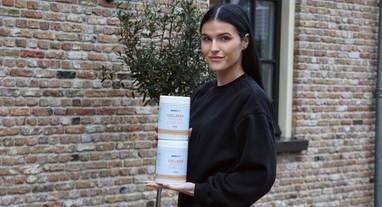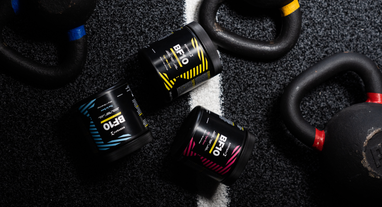What are testosterone boosters and do they really work?

You wouldn’t be wrong in thinking that bit of extra weight, a dwindling sex drive or a general lack of energy is a natural sign of ageing. It could also be a sign that you’re running low on testosterone. As interest surrounding testosterone and testosterone boosters continues to grow (primarily among men), we figured it’s time to give you the lowdown. Here, we’ll cover everything you need to know about testosterone boosters to help you decide whether they’re right for you.
What is testosterone?
Testosterone is a hormone found in humans and animals. In men, it’s made primarily by the testicles. Women’s ovaries also produce testosterone, although in much smaller amounts. It’s responsible for a wide range of physical and behavioural changes that occur during puberty, including the growth of facial and body hair, the deepening of the voice, and increased muscle mass and bone density. It also influences sex drive and sperm production. In addition to physical effects like these, testosterone can also affect mood and behaviour (in both men and women). It’s often associated with aggression and competitiveness and is thought to play a role in the development of mental health conditions such as depression and anxiety.
Why do testosterone levels fall in men?
Although testosterone is important, a dip in your T levels shouldn’t be anything to worry about. For men pushing past thirty, it’s as natural as spotting a grey hair or two.
Testosterone levels can be affected by a variety of factors. The most common include:
Aging
As men age, their testosterone levels naturally decline roughly 2% each year. This process usually starts around the age of 30 and continues throughout life.
Medical conditions
Certain medical conditions such as hypogonadism (low testosterone production), diabetes, obesity, and chronic kidney or liver disease can cause testosterone levels to fall.
Stress
High levels of stress can lead to a decrease in testosterone production.
Lifestyle
Poor diet, a lack of exercise, excessive alcohol consumption and smoking can all contribute to lower testosterone levels.
Environmental factors
Exposure to certain chemicals, such as pesticides and plastics, can disrupt hormone production and lead to lower testosterone levels.
How can I check if my testosterone levels are low?
A simple blood test is one of the most accurate ways to measure testosterone levels. Just get in touch with your healthcare provider and they will arrange one for you. The test is usually done in the morning when testosterone levels tend to be at their peak.
You can also check for symptoms of low testosterone levels and request additional advice from your doctor.
What are the symptoms of low testosterone levels in men?
Low testosterone levels in men can result in various symptoms, including:
-
Low sex drive
-
Erectile dysfunction
-
Fatigue
-
Reduced muscle mass
-
Increased body fat
How to increase testosterone levels naturally
There are several ways to increase testosterone levels naturally:
- Exercise regularly
- Get enough sleep
- Maintain a healthy weight
- Reduce stress
- Limit alcohol and caffeine consumption
- Eat a healthy, varied diet

It’s important to note that while these lifestyle changes can help increase testosterone levels, they may not be effective for everyone. If you’re concerned about low testosterone levels, it’s always best to consult with a healthcare professional.
What are the best foods for increasing testosterone?
No foods can directly increase testosterone levels. Some, however, can help boost hormone production and support health in general. These include:
Eggs: eggs are rich in protein, vitamin D, and cholesterol.
Tuna: tuna is an excellent source of vitamin D and omega-3 fatty acids.
Oysters: oysters are packed with zinc, which contributes to the maintenance of normal testosterone levels in the blood.
Red meat: beef, in particular, is a rich source of protein, zinc, and vitamin D.
Spinach: spinach is a great source of magnesium, which contributes to normal muscle and psychological function.
Pomegranate: pomegranate is rich in antioxidants.
Olive oil: olive oil is high in monounsaturated fats.
Always keep in mind the importance of maintaining a balanced diet, regular exercise, getting enough sleep and managing stress to support healthy hormone production.
What are testosterone boosters?
If you’re into bodybuilding or looking to pack on some muscle, chances are you’ve heard about testosterone boosters or ‘T-boosters’. Testosterone boosters are supplements that claim to support the production of testosterone in the body and are often marketed as a solution for those looking to increase muscle mass, improve athletic performance and enhance their overall wellbeing.
What ingredients are often found in testosterone boosters?
If you’re not sure where to start with testosterone boosters, we’ve got you covered. The list below features some of the most common vitamins, minerals and herbal ingredients you’ll find in them.
Zinc
Among a variety of other functions in the body, zinc contributes to the maintenance of normal testosterone levels in the blood. Our Zinc Complex contains 15mg of zinc per tab along with 0.5g of added copper, which contributes to normal energy-yielding metabolism and immune function.
Tribulus terrestris
Tribulus terrestris, also known as ‘puncture vine’, is a small leafy plant found in parts of Europe, Africa, Asia and the Middle East. It’s root and fruit has been traditionally used in China and India for many years. Recently, Tribulus terrestris extract has become popular as a general health supplement and is also widely used by strength training athletes and bodybuilders.
Magnesium
Like zinc, magnesium has a whole range of roles in the body. Among others, it supports normal protein synthesis, reduces of tiredness and fatigue and contributes to normal muscle function. You’ll often find it combined with zinc in what are known as ZMA supplements.
D-aspartic Acid
Aspartic acid is an amino acid that occurs in two forms (like almost every amino acid). On one hand, there’s L-aspartic acid, which is used to build protein. On the other is D-aspartic acid, which is thought to play a role in producing and releasing bodily hormones, including testosterone1. It might also be involved in the production and release of testosterone in the testicles2. This is why you’ll often find D-aspartic acid in testosterone booster supplements.
T-booster blends
Many testosterone boosters feature a blend of these ingredients and more. Our Body&Fit Men’s T-Cycle, for example, is packed with ingredients popular among bodybuilders, like ashwagandha, L-aspartic acid, vitamin B6, vitamin D, selenium, zinc and nettle extract.
Should men take testosterone boosters?
Don’t go ramping up your T-levels before taking a look at your general health and wellbeing. A poor lifestyle can mimic the symptoms of low testosterone and actually cause a dip in your T. Focus on the basics first — getting enough sleep, eating right, staying active and exercising. If you still feel like something’s not right, get in touch with your doctor.
A study by Qassim University3 suggests that there’s still a lot of research to be done on the effectiveness of testosterone boosters. If you’re interested in trying them out, it’s essential to choose the right one for your unique needs and goals. Always consider the ingredients in the supplement, the dosage, and the reputation of the brand (we only work with the most respected and regulated ones out there), especially if you have pre-existing medical conditions or take other medications. The same, of course, goes for all supplements new to your routine.
For any further questions regarding testosterone boosters or sports nutrition in general, our Nutrition Experts are always on hand to help you #FINDYOURFIT. Feel free to hit them up via Instagram or the customer service channel on our site.
-
Occurrence of D-aspartic acid and N-methyl-D-aspartic acid in rat neuroendocrine tissues and their role in the modulation of luteinizing hormone and growth hormone release - PubMed (nih.gov)
-
D-Aspartic acid: an endogenous amino acid with an important neuroendocrine role - PubMed (nih.gov)
-
Effect of testosterone boosters on body functions: Case report - PMC (nih.gov)




